

Building on from last month’s Celebrating Success article of our Tech Competition series, here we share the success stories of the top three (3) winners for the Huawei Spark Malaysia Competition. Five esteemed judges from TM One, MDEC, Huawei, and TusStar, alongside special guest, selected these three (3) winners among 140 entries in the competition.
The competition gave the winners the benefit of participating in a six-month-long Accelerator Programme along with cloud credits to build their tech stack. As a special recognition, the champion of the Huawei Spark Malaysia Competition had the opportunity to join the Spark Fire programme.
Discover the Top Three Winners of the Huawei Spark Malaysia Programme in Part Two of our Tech Competition series below:
1st Place - Innov8tif OkayDoc
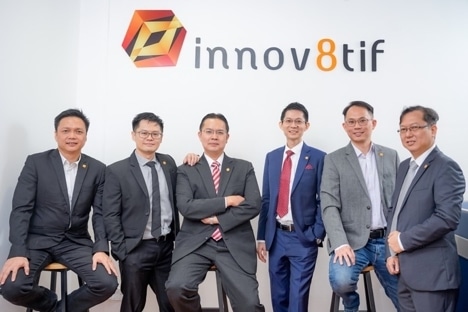
Established in 2011 in Kuala Lumpur, Innov8tif is a certified Artificial Intelligence (AI) company specialising in three (3) key areas: low-code process automation, digital customer onboarding, and biometric authentication. It is best known for providing Electronic Know-Your-Customer (eKYC) solutions for banks, telecommunication companies, e-wallet providers, and insurance firms. The company’s customer base has since expanded to several ASEAN countries, including Singapore, Indonesia, the Philippines, and Thailand.
Its winning solution, OkayDoc, is part of a wider flagship offering called EMAS eKYC. Other components include OkayID, OkayLive, and OkayFace, which handle the biometric authentication and document retrieval features for the company’s e-KYC solution. These components operate the key processes involved in integrating an e-KYC solution for Innov8tif customers.
The OkayDoc component primarily acts as a document verification tool during the eKYC process. This offering assists back-office operations to reduce ID examination work. Powered by AI, OkayDoc automates the authentication process to check for visual compliance and prevent fraud during the eKYC check. This feature uses machine learning capabilities. Innov8tif has developed nearly 12 sets of algorithms to cater for its OkayDoc platform.
Every Identity Card (IC) comes with key features to help detect fraud through the naked eye. Our MyKad, for example, has specific landmarks placed as visual elements. These include the chip's position, the placement of our iconic KLCC Tower, and the text layout. However, pictures sent using a smartphone blur the specific positioning of these visual elements, making them difficult to be spotted. It then becomes a challenge for companies to verify a customer's authenticity.
Telecommunication companies face this very issue, doubled by the need to tackle massive amounts of SIM card registrations by ID verification. This immense load is a prime reason why large numbers of frauds go undetected, despite the simplicity.
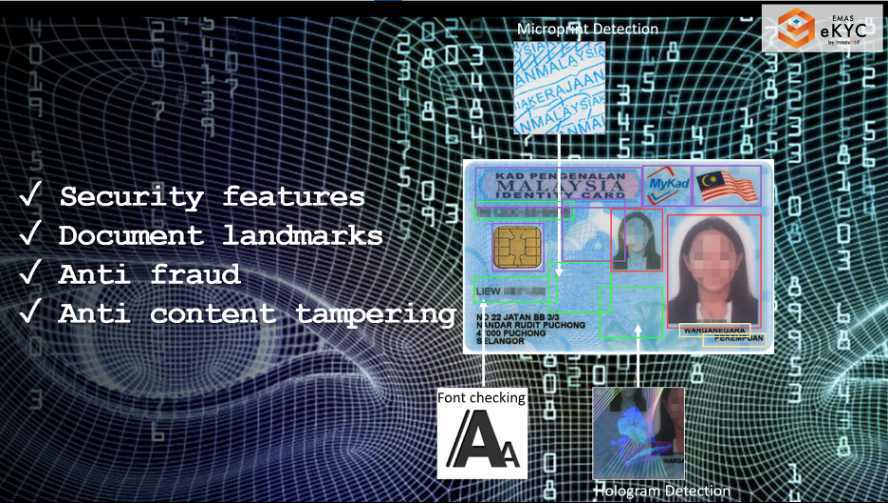
Through OkayDoc, the computer vision algorithm automates the verification process via visual zone inspections and content tampering checks. By using this algorithm, OkayDoc can run advanced tests to check for landmark placings, microprint checking, and font-size checking. The AI-driven vision reduces human error by a magnitude of 70%, allowing human staff to be available for tackling more complex and threatening fraud issues.
The company's solutions proved to be a necessity during the MCO in 2020. Telecommunication companies within their clientele reported more than a 280% increase in monthly prepaid SIM card activation through their eKYC platform in April 2020. The automated verification process was crucial for equipping companies with the right tools at the right time. Companies could capture the influx of sales coming in securely, irrespective of the circumstances at play.
2nd place - DoctorOnCall (Transforming Healthcare for The Future)
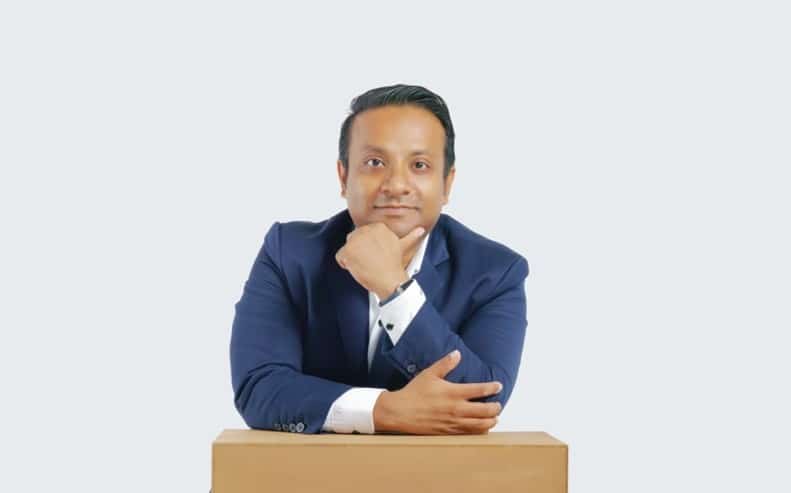
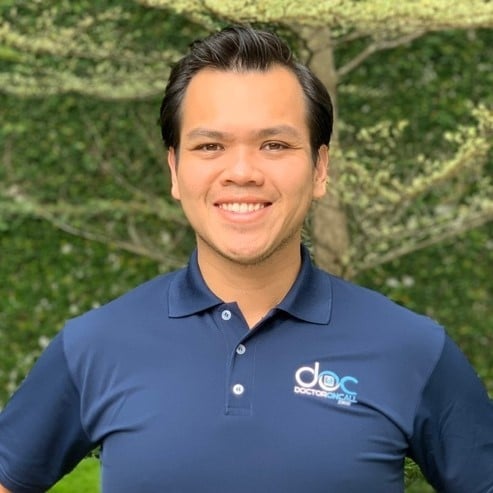
Quoting Maran Virumandi, Managing Director & Co-Founder of DoctorOnCall (picture on the right), "Online or digital health is poised to continue growing in 2021, offering greater access to patients. DoctorOnCall as a provider will continue evolving our ability and meet technology requirements such as data exchange in a seamless manner and privacy while focusing on meeting the growing needs of our insurance, hospital, clinics and pharmacy partners."
Founded in 2016 by two former consultants, DoctorOnCall is a tele-healthcare provider that aims to provide patients with immediate access to doctors, medication, and other healthcare services. Driven by local factors such as rising healthcare costs and busy lifestyles, decreasing clinic visits due to COVID-19 and insufficient rural health infrastructure, DoctorOnCall started offering medical teleconsultation via chat, phone, and video calls. Since its inception, it has grown into the largest online doctor consultation platform, with over 250,000 subscriptions, 100 registered doctors, and more than 200,000 medical consultations facilitated. With a vision to build a more robust healthcare system, DoctorOnCall plans to expand regionally to Thailand and Indonesia.
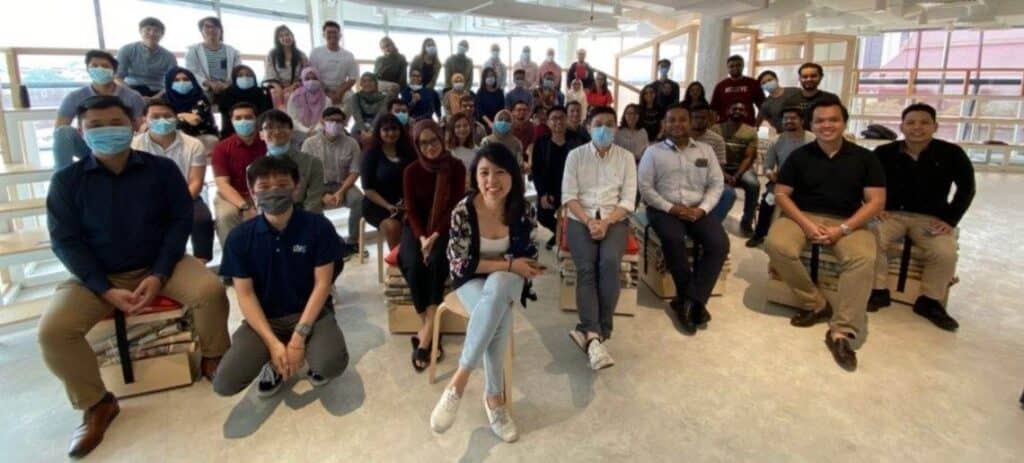
DoctorOnCall offers end-to-end healthcare services, including same-day medication deliveries, health-related educational content, doctor appointment bookings, and professional home diagnosis. Buying medication under prescriptions on the platform will allow patients to save 30% to 70% on the cost compared to purchasing from private hospitals or clinics.
This platform combines video and voice technologies with AI and a professional medical knowledge base to offer medical teleconsultation. Notably, it operates a website integrated with Big Data, housing a doctor database of more than 1,500 specialists in over 30 hospitals, with whom users can seek consultation virtually. Recognising issues in poor data quality from legacy healthcare systems, DoctorOnCall also uses data from integrated health exchanges. Substantial information allows well-trained AI machine algorithms to accurately diagnose non-communicable diseases (NCD) based on patients’ symptoms. The platform also implements digital health cards to enable doctors to access information from past consultations.
DoctorOnCall has a track record of partnering with established names. Recently, it collaborated with the Malaysian Ministry of Health (MoH) to develop a virtual health advisory portal. As a result, the platform was able to address public concerns over COVID-19, provide self-assessments and facilitate online advisory sessions with doctors. It was a timely intervention, as moving consultations online promoted social distancing and reduced congestion at clinics.
3rd place – MHub (Digitalising Real-Estate)
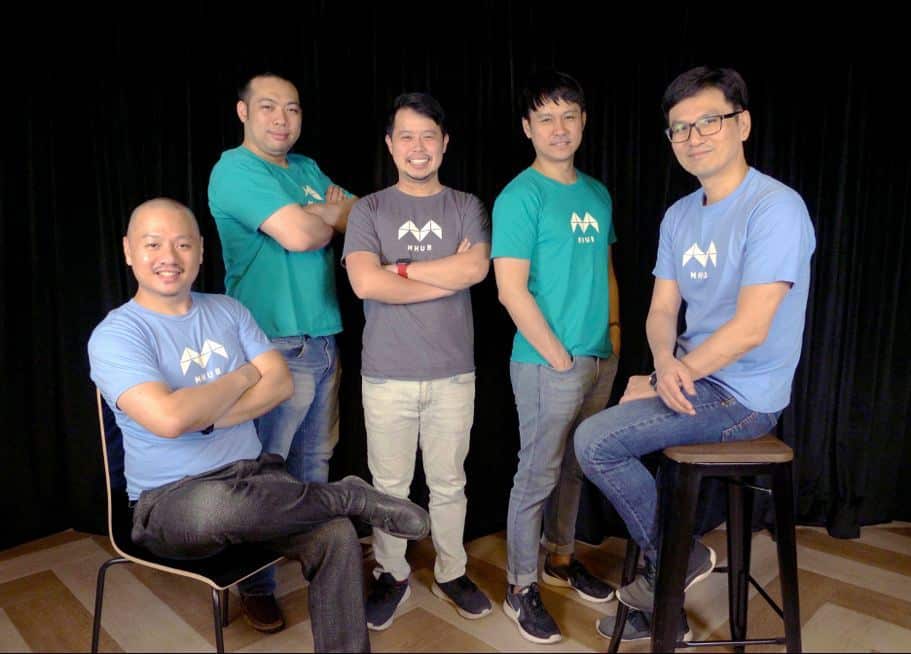
Launched in 2015, MHub is a hybrid property tech and fintech platform. One of the four (4) founders who was looking to buy a house, faced difficulties in obtaining a loan, but he was fortunately bailed out by a banker friend. The tumultuous experience inspired MHub to create a platform that could streamline the processes of all real estate and property stakeholders. The platform consists of a suite of client software and services that connect home buyers, property developers, bankers, realtors, and lawyers.
MHub offers 10 different solutions that serve multiple stakeholder needs – Customer Relationship Management (CRM) automation, showroom booking, Sales and Purchase (S&P) agreement signing, post-sales finance, and defect handling, among others. The challenges in the Malaysian property market come from inefficient and outdated pen and paper-based processes. These issues result in complex business processes and significant time consumed to complete the transaction. By embracing digital solutions, MHub can reduce the sales transaction period of a typical real estate sales deal by 50%.
The platform operates on a cloud-based architecture for its products, allowing all information to be accessible and integrate seamlessly. AI forms the core of its intelligent matching algorithms; it uses real-time certified data to guide homebuyers on the best financing method. This feature helps in tackling poor credit scores and low awareness of available options. For example, homebuyers from a subscribed developer can conduct their credit assessment, determine their borrowing capacity, and obtain bank loans through this app. With COVID-19 causing buyers to stay away from sales galleries, MHub developed “Showroom for Buyer”, a solution to offer homebuyers virtual walkthroughs of physical units. Users can now view, book, and make payments for property units remotely while being guided by property agents and developers.
The winners of this competition reflect the development of the start-up ecosystem in Malaysia. For the environment to thrive, robust support from the public and private sectors are crucial.
Start-ups often require help beyond funding, such as market access and mentorships that can provide long-term value. Such help is an essential aspect behind a start-up’s success, especially for those that serve the B2B market. Without market access, these start-ups would not have the visibility to understand and tackle the problems faced by businesses. What happens then is that start-ups often have difficulty finding product-market-fits, leading to a failure in ensuring business values.
This void by start-ups is the very one that corporates and the public sector can fill. They can provide start-ups with access to their business networks and resources, which are invaluable for testing, developing, and scaling solutions. Events like the Huawei Spark are examples of how collaborations can fulfil the voids. Assistance is not only monetary but through crucial resources like customer access, infrastructure, and mentorship.
As the business solutions arm for Telekom Malaysia Berhad (TM), TM One sees the untapped value in the power of collaboration. With the right plan of action, development can take place through education, innovation, and social initiatives.